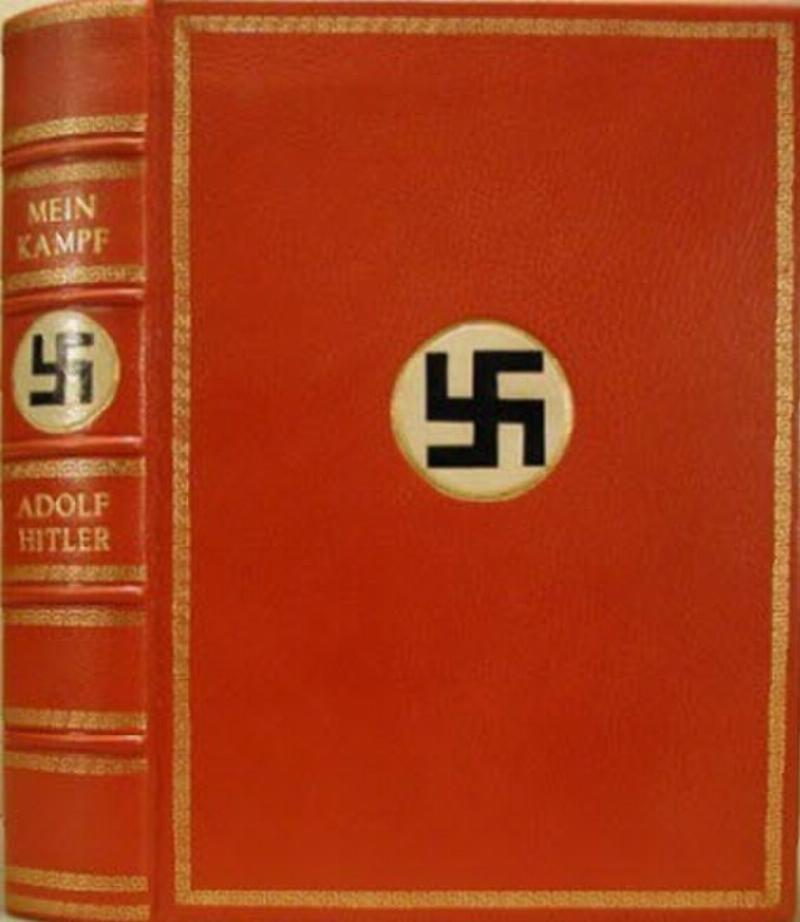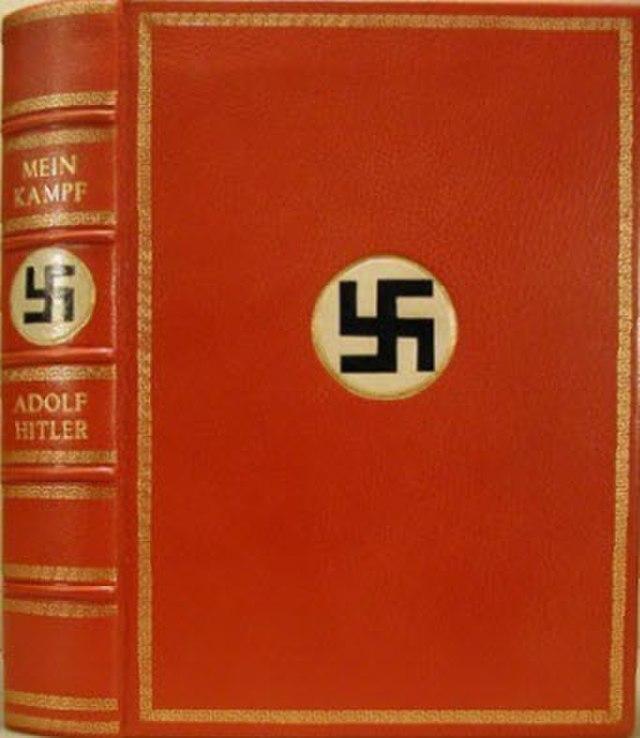


This week marks the hundredth year anniversary of the publication of one of the most hate-filled books ever written. Yet, within two decades, it had sold over twelve million copies, helping to spread an ideology that would trigger a world war and genocide against Jews.
The first volume of Mein Kampf, meaning “My Struggle,” was published on July 18, 1925—a political manifesto outlining Adolf Hitler’s evil ideology and plans for Germany, justified by the supposed superiority of the Aryan race. It advocated overthrowing democracies to create authoritarian states. Interestingly, the book was published while Hitler was still in prison for a 1923 coup attempt.
Following World War II, Mein Kampf’s copyright was transferred to Bavaria, which banned its republication in Germany. When the book’s copyright expired in 2016, criticism concerning any republication ran from the need to educate the public about past errors to a fear about inciting future hatred. A new edition of the book was recently published that includes over 3,500 annotations that seek to counter Hitler’s hateful messages contained therein.
It is inconceivable that a century later, we would be witnessing antisemitic protests on numerous college campuses across America as participants support a Muslim terrorist group that promotes, once again, the same Jewish genocide Naziism sought.
Such protests gave me cause to reflect upon two incidents experienced by my grandfather—then Lieutenant Colonel Elmo R. Zumwalt, Sr.—who served in the U.S. Army in World War II, in the European theater. While decades have passed since he shared them, they forever remain etched upon my mind.
Sadly, the hatred of Jews has long been a tragic part of world history. World War II marked another era in which such hatred surged. So horrendous were my grandfather’s experiences that, lest they be lost to history, he recorded what he could as his medical officer responsibilities afforded him time to do so.
On April 3, 1945, U.S. forces began crossing the Rhine River and pushing into Germany. On April 14, the U.S. 102nd Infantry Division—to which Grandfather’s 100th Evac Hospital was attached—approached the town of Gardelegen. As it did so, it came across the smoldering ruins of a large barn. A closer inspection revealed more than a thousand human remains between victims in the barn and bodies in a partially covered trench dug to bury them.
Grandfather immediately set up a field hospital to treat any possible survivors. Only eleven were found.
An immediate investigation determined that, during the previous days, 4,000 mostly Jewish slave laborers had been relocated from other concentration camps to Gardelegen. Unable to handle such a large number, the infamous Nazi SS recruited auxiliary forces from among the local citizenry to take custody of them. Rather than treating the sick and most weak, these auxiliary forces marched them into the barn and set it on fire. Any one attempting to escape was shot. Tragically, this massacre had occurred only one day before U.S. forces arrived.
With so few survivors, attention turned to interment of the bodies. Despite the need to act quickly on the matter as a health issue, it was decided the victims would not be subjected to the indignity of a mass grave. They had suffered enough; their bodies would not spend eternity so callously discarded.
Due to the complicity of the German people, local citizens were pressed into digging individual graves for each victim. Additionally, each German citizen was charged with responsibility to maintain the grave for the rest of his life.
Individual graves were dug for the 430 bodies recovered from the barn as well as the 586 bodies exhumed from the trench. The grave maintenance responsibility given to town residents was intended to ensure they never forgot the atrocity in which they had, either directly or indirectly, participated.
When news of the Gardelegen massacre spread, a U.S. soldier acknowledged, “I never was so sure before of exactly what I was fighting for.”
Grandfather also became one of the first medical personnel to enter the infamous Dachau concentration camp after its liberation on April 29, 1945. Attesting to the horrors that existed there, including dead bodies stacked as if they were firewood, he had yet another sad story to tell.
As the former prisoners abandoned their bug-infested and filthy barracks, tents were set up around the camp to house them. One of the tents was for orphans. Among the orphans was a young boy, perhaps five years old, who did not even know his name, appearing deathly thin. Taking a liking to grandfather, each day the boy appeared at his office at about the same time. Grandfather used the opportunity to supplement the boy’s rations with fresh bread and chocolate which was accepted without uttering a word.
When the boy failed to show up one day, grandfather went searching for him. The boy’s lifeless body was discovered in the orphan tent. Under his bed were found all the bread and chocolates he had been given. Believing the sudden abundance of food to only be temporary, the boy had hoarded the bread and chocolates for the less plentiful days he feared again lay ahead.
Grandfather bore witness to an unfathomable hatred for a people whose only “sin” was to be Jewish. Yet, the Nazis were so blinded by their hatred, they failed to recognize the sins of their own actions. One would think the barbarity of their actions would never have been forgotten, yet it has been by college protesters ignoring the brutality of Hamas that it demonstrated by the October 7, 2023 massacre of 1,200 innocent Israeli men, women and children.
In Greek tragedies, the protagonist often experiences a reckoning. Sadly, a hundred years after Hitler’s book was published, antisemitic protagonists still thrive, oblivious to the 3,500 annotations in the new version of Mein Kampf seeking to counter such hatred.

Image: Public domain.
